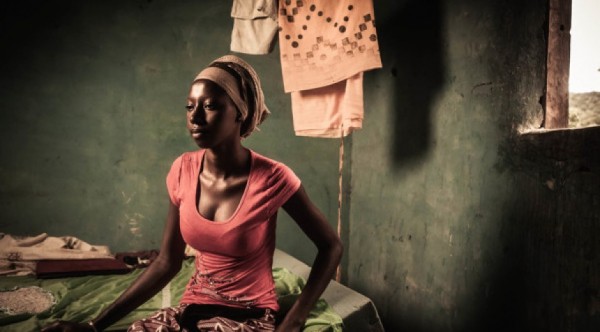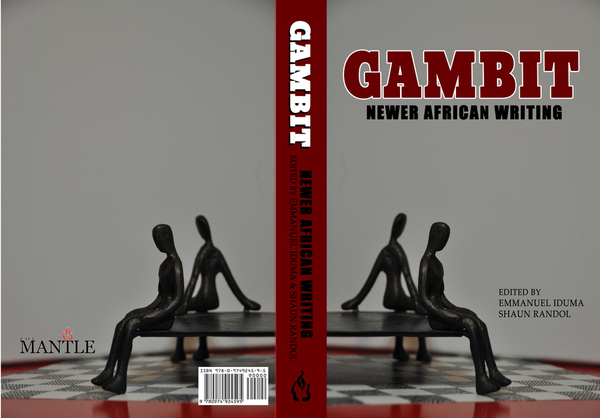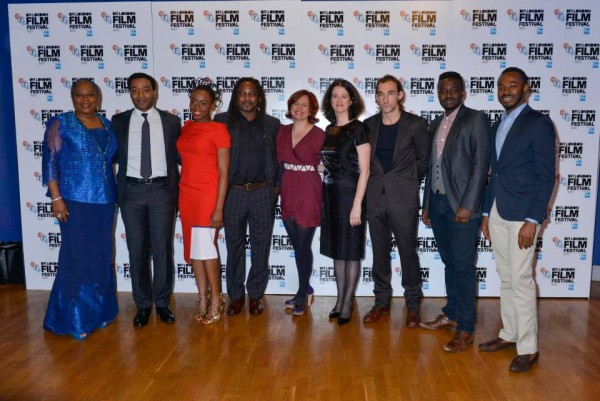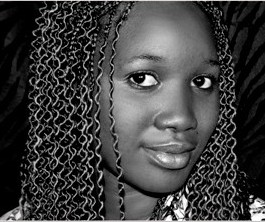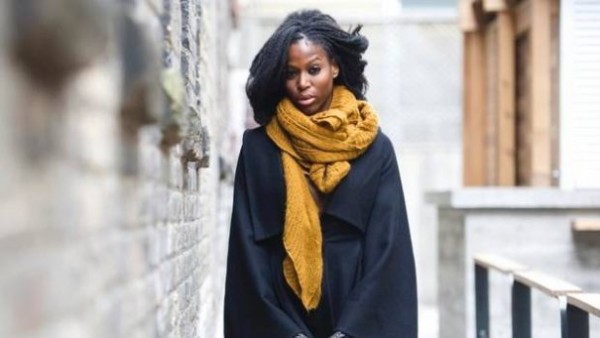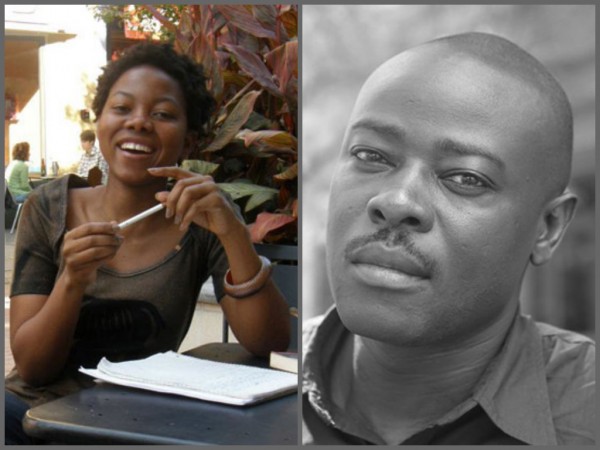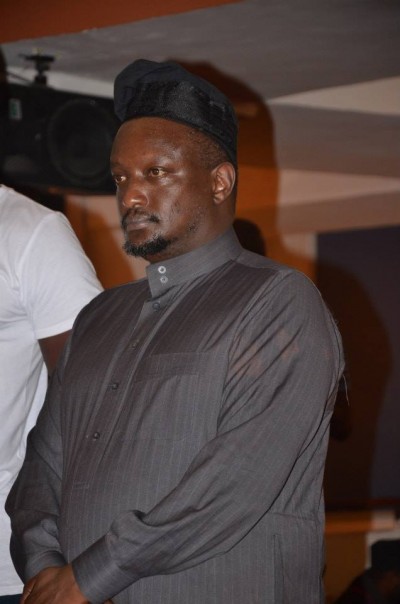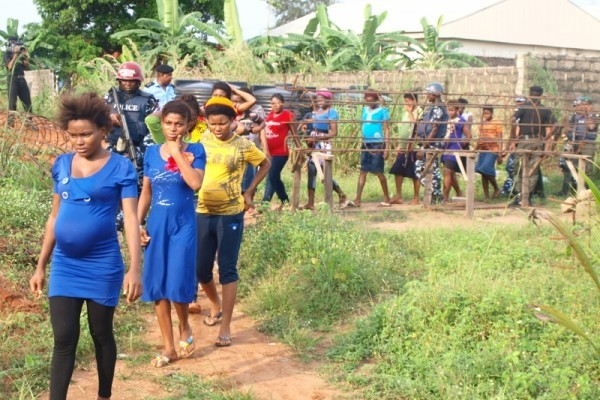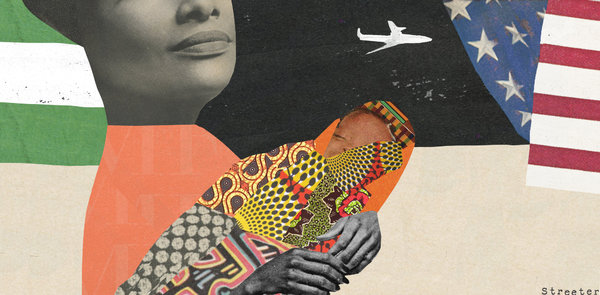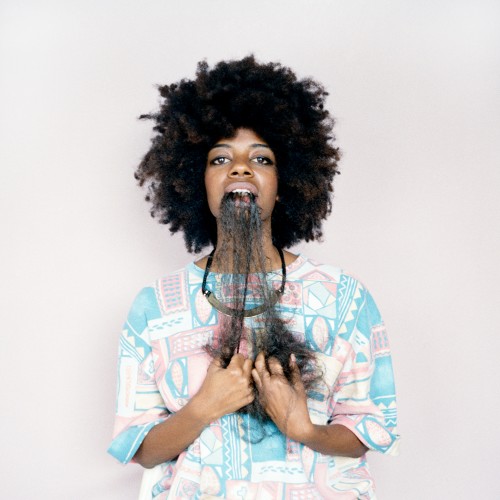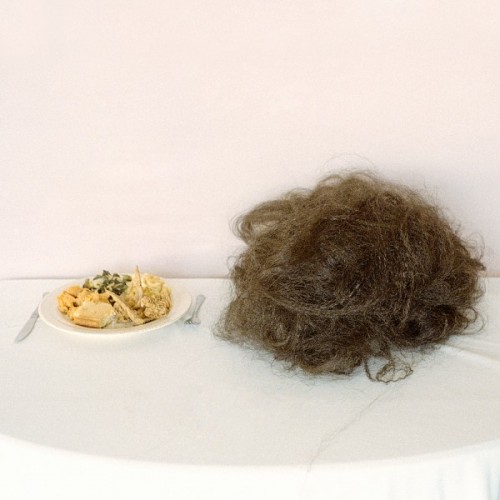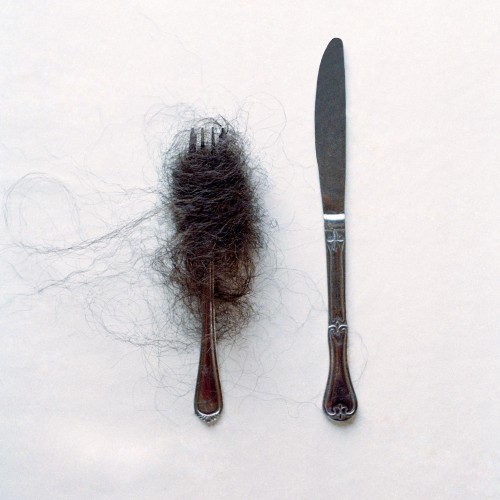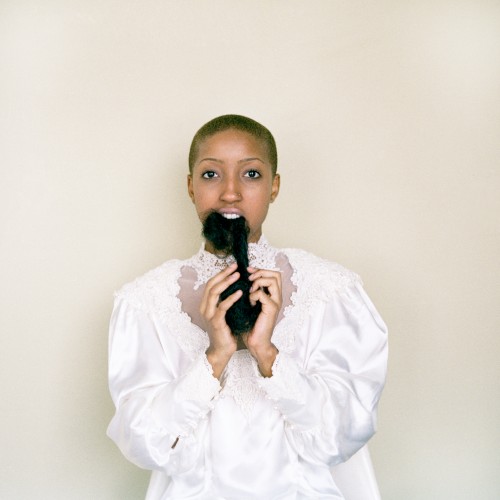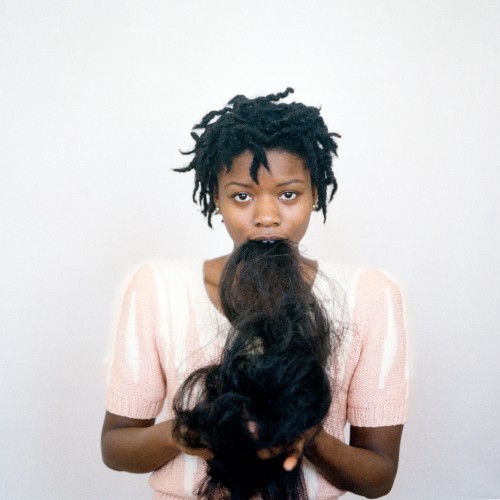
I felt guilty for loving this story. Funminiyi Omojola who is a returning Brittle Paper champion comes strong in this sad but irresistible tale about all that is dark in the life of a girl desperate for the good things of life. There are so many ways for things to go wrong between a guy and a girl. You just hope it never goes wrong for you like this.
They sat beside each other on the cold cement floor, their legs stretched out in front of them.
Amara stared at hers. They were fat and lumpy, like that of a woman who had given birth to all the children in her belly. And even though her neighbor was further gone, Aniekan’s legs were skinny, like the rest of her. She had bony shoulders and hands that were long and thin like tree branches. Her palms were clasped over her big stomach, a network of green veins visible on them. Her head was hung on one side, an absent look in her eyes.
“Are you okay, Aniekan?” Amara asked. The other girl did not respond. She just blinked. She had barely spoken a word in almost two days. She just sat there and stared, and blinked.
Amara got up from her sitting position and looked out of the window they had been sitting underneath. It was evening, yet the sun sat in its usual spot in the sky like a cripple. A large hawk crossed its smiling face and punctuated the raucous laughter ringing in the July heat with loud squawks. Amara’s eyes went from the skies to the teenage girls in the compound. They were busy – washing clothes, sweeping, clearing debris, chatting and laughing.
Here was a nightmare.
She had thought that it was only children who could find happiness in dark places. But she had come here to find that she was wrong. She was in a place where happiness had been wrested from the hands of every inmate, yet, life went on as if all was well.
She wondered about her family. Had they stopped searching for her? Had her father, after the first few frantic weeks, come to terms with the idea that his daughter was missing for good, shrugged and retreated behind his glasses and endless newspapers? What about Ada? Had she moved on with her life, with her provocative dressing and the reckless use of sexual allure to fund her life?
Her mind came back to the present.
She could barely hear what they said because the louvers were shut, but one look at Oma, the tough round girl with woolly hair who sat on the pavement told Amara that they were having a good time. Oma who rarely mingled with the others was smiling indulgently at the chit chat around her, filing her nails and spitting intermittently into a gutter. Her spittle was startlingly white, compared to her charcoal black complexion.
“See this mumu? Na one thousan’ them take fuck you?” Amara heard Oma guffaw, pointing the piece of metal in her hand at Chinenye, an awkward girl with a long, bird-like face that was guarded on either side by hair that had been woven taut in black thread. Chinenye’s back was turned to the window but Amara could see she was bent over a bowl filled with clothes, washing vigorously. The water in the bowl was a dark color and had little lather. Beside her gritty heels that were marred by Y-shaped cracks was a mashed remnant of green bar soap.
All the other girls laughed at Oma’s jokes, more out of deference than funniness. They all showed Oma a lot of respect because she was a veteran. They said that she had produced up to four – all of them male, and she was carrying the fifth.
Amara suddenly felt dizzy. Slowly, her buttocks against the wall, she slid back into a sitting position, squeezed her eyes shut and palmed her forehead where a turbulence was brewing. It felt as if her brain was in a vortex, and something pounded in her head till she felt as if her skull was readying to implode. Her second hand cradled her swollen stomach. An inferno had traveled down there, singed it’s way through her chest. She burned all over. Tears fell freely from her eyes.
“I have saved some money. Hundred thousan’,” Aniekan’s voice broke through Amara’s pain.
“After this one, I will leave and never come back,” she sniffed.
Minutes later, when she felt better, Amara turned to her friend who had produced three before, all of them female, and was now carrying the fourth.
“Don’t you worry about them?” Amara whispered. “I mean, that you may never meet them again, never know who they turn out to be?”
Aniekan sighed.
“Well, sometimes…” she replied in a pensive tone. She looked as though she wanted to add something else, but then shrugged it away.
“You should do the same too. Have two or three, save some money, then go an’ start your life afresh”. She faced Amara, and with a serious look in her eye said, “Obodo bu igwe, and life is wicked. You have to use what you have to get what you want, nwanne’m.”
It was a funny thing. Those were Ada’s exact words to her that night, six months ago.
***
The first time Amara met him, he walked up to her in the middle of a busy road.
He later told her that he had been driving past when he saw her, standing, a black nylon bag hanging from her right hand like a wrecking ball. Her attention was riveted on the oncoming traffic from her side of the road and so she did not notice him stare, nod, apply the brakes, pull up and turn off the ignition.
It was when she had safely made it to the carriage divider that she saw him, crossing also, walking towards her, a small smile on his tiny lips. She did not recognize him, and so had tried to make way for him, but he just stood there.
He was very dark in complexion and young, around twenty two. He had rich dark eyebrows that arched themselves up in worry. His nose was small and pointed, and his lower lips were pink. He was dressed in a richly embroidered black kaftan, like a mallam, despite the fact that he was obviously Ibo.
“What is it?” she had asked, as cars whizzed past behind him.
“Nothing,” he replied. “I saw you, again. And I decided I would not let you go, this time.”
“I don’t understand,” Amara said, more relieved than flattered. To say she was scared was an understatement. Enugu was a dangerous town. She had heard many stories of rape and kidnap that began romantically, by a stranger walking up to a young woman, chatting her up and befriending her till things spiraled out of control.
They crossed the road together.
“Can we talk inside my car?” he asked, pointing with the silvery snout of the key in his hand at a black, shiny Mercedes parked on the roadside. Amara did not know much about cars but she did not need a seer to tell her that what she was being invited into was an expensive automobile.
She shook her head and kept on walking.
“Did you have to cross the road? What do you want?” she asked, beginning to feel flattered by the attention.
“Yes, I was afraid if I did not, you might disappear, again. I had to.”
She looked up for a second and saw a look of fondness festering on his fascinating face as he described first seeing her on Alo Street, two days before. She remembered the day he spoke about. She had gone there to see Uloma, her friend who had just had an abortion, and was very ill. Ulo had tried to keep the fact of the pregnancy from everyone, but when the quack doctor at New Haven had nearly taken her life, the world got to know, as her father aptly put it, ‘of the secret soup she was cooking that burned down the house’.
“I tried to follow you but you turned a corner and just disappeared,” he concluded.
She watched him throw his long legs in front of him as they walked. She felt small beside him, barely reaching his elbows, but she liked the air that surrounded him. It reeked of easy comfort. He had an assuredness about him, the kind of assurance that came when one had money, charm and time at their disposal.
Amara looked at the gold-plated face of her leather strap wristwatch. It was a quarter to seven. Ada would have started to worry about her. Her elder sister had sent her to buy Garri. She had had to go farther because the aging woman who owned the food stuff kiosk next door had closed up and entered her house. Amara did not blame Mama Ngozi. The activities of the hoodlums whom Enugu bred by the thousand had no respect for either age or meager holdings.
“So, what do you want?” she asked again.
“Your number, thank you” he smiled charmingly. His teeth were neatly arranged, and sickeningly white, like the flesh of boiled egg. He already had his phone in his left hand, his thumb hovering above the number Zero on the lighted key pad.
“I don’t have a phone,” Amara responded, truthfully and came to a stop. She was close to the house already and had no intentions of letting a stranger, no matter how handsome he was know where she lived – at least not yet.
“Give me your sister’s own,” he said, a little too knowingly.
“How do you know I have a sister?” she queried.
“I was hoping so,” he had laughed. “You can’t give me your brothers’ own for obvious reasons,” he explained and chuckled. Amara thought she detected a note of nervousness in his tone.
“Well, I don’t have a brother, or a sister,” Amara had lied.
His smile had dimmed a little in wattage then. “So, how do I see you again?” he rasped.
“I don’t know. I really must go now. You can see me anywhere, I live on this street. Please stop following me,” she said, sounding a little desperate even in her own ears.
“You will not tell me where or how I can see you then?” he asked, straightening to his full height and pocketing his phone.
“I live on this street,” she replied.
“Okay, at least tell me your name, bikonu…” he pleaded.
“No,” she responded and started to walk away.
She had been a little relieved when he did not follow her, yet as she walked, a lot of thoughts assailed her.
Had she been too difficult? No, she did not think so. The city was brimming with rich and handsome young men who fed on young, innocent girls. They used and dumped them, sometimes raped them or used them for money rituals. On that score, she decided she was right to have been wary and not divulged any information about herself.
“Information is key,” her father always said. “With the right information, a man without hands can open a locked door.”
She always wondered how that was possible but never asked him to explain. Coincidentally, she also always considered herself a locked door, when it came to boys.
“Until you are ready to get married, you must remain a closed door,” was a mantra Nne had, like hot balm onto a painful sprain, massaged into the heads of her two daughters before she had passed, two years ago.
So it was vital she hid information well then, until she felt ready.
Yet, something told her that that young man had meant no harm. It was that same treacherous something that had tried to pull words out of her mouth, but she had restrained herself. All through their short liaison, he had not tried to touch her. In the past, she had had to slap many a hand from across her supple waist. That was standard Enugu toasting procedure. But he had been different, urbane and gentlemanly, even using words like ‘thank you and please’. Suddenly she wished she had been more liberal. She felt a little sad he had not tried to follow her. She glanced behind her but found he was gone.
The ‘yard’ in which she lived in Emene was bustling with near nude children when she stepped in. A sharp pain coursed through her as she sidestepped the happy brood skipping around the sandy compound. They were a blessed lot, weren’t they? For them, ignorance was pure bliss. Amara did not see how anyone who lived in such squalor could experience a second of happiness. She greeted Mama Emeka who squatted by the entrance to her one room apartment, bathing her toddler in a basin. The boy had rings of lather all over his body and was running his palms over his face in hurried circular motions.
“Emeka, come take biscuit when you finish you hear?” Amara invited him.
He was a nice and quiet kid and they got along very well. He was the only one who shared her reflections and angst. Whenever she was most depressed, he would come pattering into the room she shared with her sister, cuddle up beside her and suck his thumb. She would tell him stories, first of the tortoise, then of grandeur – how there was a better life out there somewhere waiting to be lived. Many times, he was content to fall asleep in her room until his mother would come for him.
“I come,” the boy responded, his eyes still shut tight.
She found her father seated at the entrance of their two room apartment. If she were asked to paint a picture of the man, there was a classic image of him that would jump into her head. It was of him as he sat, reading from a newspaper. His bald head shone brightly under the glare of the electric bulb hanging directly above his head. He wore a white singlet that dipped into a slack “U” at the chest, revealing the bones of his thoracic region. Steel rimmed spectacles perched over a small nose, underneath which a chewing stick danced with vigor. He wiggled long, spindly legs wrapped by a faded red ankara wrapper.
“Nno papa,” Amara greeted as she walked past the seventy-something year old man.
“Ada has been looking for you,” her father responded in a voice made gruff by snuff. He barely took his eyes off the newspaper.
“Ehen? I went to buy the Garri she asked for,” Amara responded, raising the dusty door blind and disappearing into the parlor. Another shot of pain zipped through her like electric current. She eyed the room with distaste. It was bare, and the bright lighting made the fact all the more glaring. She eyed the two single chairs and a settee stationed in a rectangle around the room. The seats were clothed in purple and the chairs all dipped in the middle. It was better to seat on the floor than on those chairs. The settee was better because instead of dipping in the middle, it’s seats were lumpy, undulating. On the floor was a tattered blue rubber carpet, matching the blue walls. The focal point of the room was the wooden cabinet on which sat a small television, and beside it a transistor radio. The other compartments of the cabinet were littered with odds and ends like exercise books and disused Tiger batteries. In the middle of the room was a rectangular table, and on top of that laid open her Government text book, a jotter and her Schneider biro. She had been studying for final examinations before Ada had sent her on the errand.
“Sister,’” she called out needlessly as she approached the kitchen.
“Ogini? Why are you shouting my name?” Ada responded and they had both laughed at the mutual joke, their voices bouncing off the walls of the long, cluttered corridor. Surprisingly, Ada was alone in the kitchen. At that time of the night, there would usually be at least three women in the kitchen, in different stages of culinary activity. Ada sat on a low stool and was bent over their kerosene stove, stirring a pot of Ogbono soup. Since Nne had died, Ada had done most of the cooking before she had gone to the University. But Ada was home because the schools had been closed down. The lecturers had embarked on what they referred to as ‘the mother of the mother of all strikes”. Amara gently dropped the nylon bag in her hand on the floor beside her sister.
“What took you so long?” Ada asked without looking up.
Amara explained. And then on impulse, she added:
“One guy came to talk to me as I came home.”
“Ibiakwa, who is he?” she asked, a big smile of surprise and obvious approval on her face as she fiddled with the knot on the nylon bag.
Amara told her the story.
“Ha, why didn’t you tell him your name, nu?” Ada muttered. She was trying to undo the knot with her teeth.
“I don’t know… I don’t know him sister.”
“Hmm, okay, biko when next you see him, call me, let me meet him. He sounds like a good, responsible person.” And lowering her voice, “And rich too. Amara, you know we need money. You are no longer a child.”
“What are you saying sister? That I start sleeping with men for money?” Amara’s eyes widened in alarm.
Ada hurriedly clamped a palm over her younger sister’s mouth.
“Mechionu ebaa, stupid girl” she growled, eyeing the teenager sternly before she let go of her, turned and started to pour Garri into the pot of steaming water.
After they had eaten, and turned in for the night, Ada faced her younger sister as they laid on the narrow mattress they shared.
“Amara, you are no longer a child. You need to outgrow all these childlike things that you do. Don’t you want to get married someday?”
“I do, but not now. I still have to go to school.”
“School!” Ada laughed. “You are aware if we are to work by papa’s clock, I have to graduate before you ever can dream of entering university? All things being equal, I will, in three years time. But with strikes and all you may have to wait longer, maybe five years?”
What Ada said was true. Their father earned four thousand naira a month at the Government technical college where he was a janitor. Amara often wondered what kind of janitor he was since the school had no windows and all the classroom doors were missing. But it was the job that fed them. When he gave his daughter her monthly allowance of one thousand naira, their father never looked at her eyes. They all knew Ada’s life style on campus cost far more than that, but some questions were better left unasked.
“If the ear does not hear the fart, the nostrils just may not pick its stink,” was another of their father’s favorite sayings.
Amara knew her sister pallied with an assortment of Enugu’s Yahoo boys. Her current boyfriend was Lucky, a final year Botany student who drove a Nissan Pathfinder. Ada said she attracted them all with her angelic face and scandalous dress sense. She was proud of her wide hips and round buttocks which held men spellbound, but a sixth sense always told Amara that what bound her sister and these boys together was more sinister than mere sex. The way they ‘hailed’ her was suspicious. Also, Ada received her romantic phone calls in the room, uninhibited by Amara’s presence. But there were also calls she left the room to receive in the backyard, and they lasted long hours.
Amara listened dreamily to her sister’s voice telling her to grow up and to take charge of her destiny at a young age. Ada told her how she was lucky to have blossomed so fast that at seventeen she was already attracting men with money, with her full breasts and wide behind, while her mates still desperately stuck their chests out and hung their behinds in the air to attract attention – and all to no meaningful avail.
“Have you collected JAMB?” her sister asked her.
She shook her head in the darkness.
“I have told you, you cannot work with papa’s time. This is your opportunity. You don’t have to sleep with him. Just play your cards right and all will be okay. I will show you what to do.”
Amara dreamt of him that night. Twice.
In the second dream, he met her and her sister, again in the middle of the road; and this time, he put his arms around Ada and both of them had laughed at her.
Amara’s story continues next Monday
Photo Credit: Anthony Kurtz. Check out more of his work HERE.
***
 Oluwafunminiyi Omojola is a Nigerian writer who is also a banker. Being a Yoruba man who is married to a Hausa lady and resident in Iboland, Funminiyi considers himself an epitome of the detribalised Nigerian.
Oluwafunminiyi Omojola is a Nigerian writer who is also a banker. Being a Yoruba man who is married to a Hausa lady and resident in Iboland, Funminiyi considers himself an epitome of the detribalised Nigerian.
His poems and short stories have appeared in many news dailies and magazines around Africa including The Sunday Sun, This Day, and The Kalahari Review.
